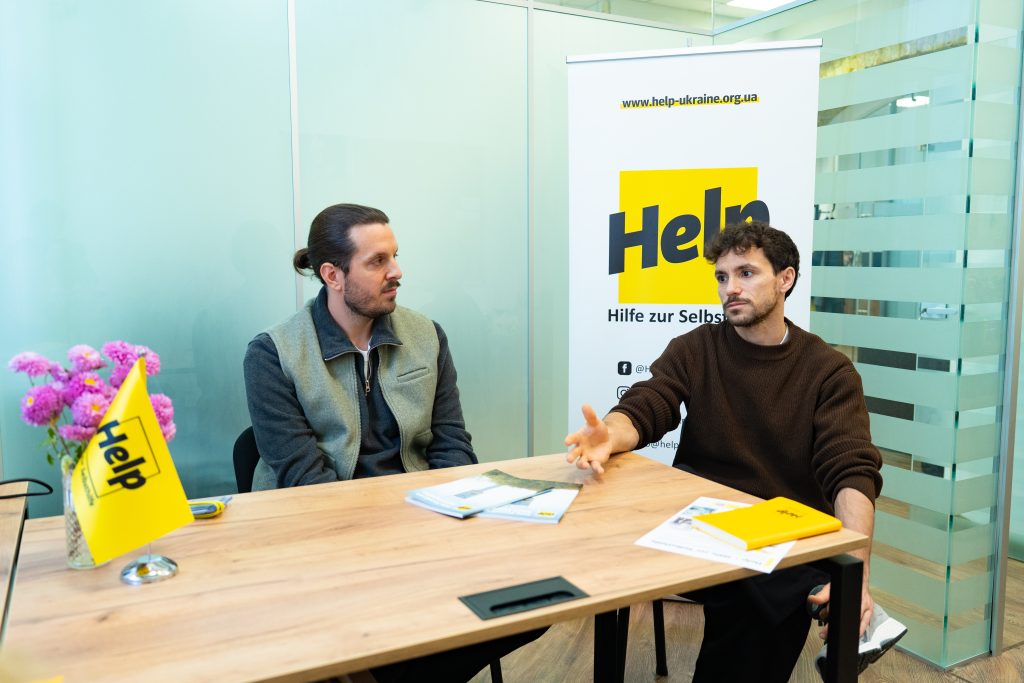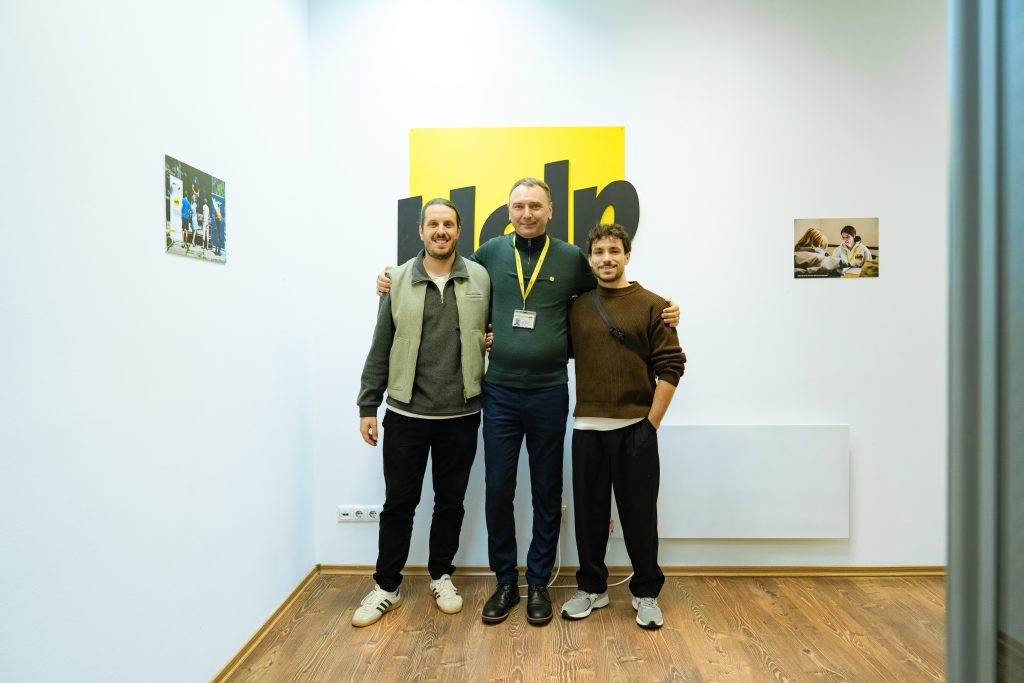Representatives from the Help – Hilfe zur Selbsthilfe headquarters made a working trip to Ukraine to discuss further programme development, meet with partners and assess the effectiveness of the team’s work in wartime conditions.
At the end of October, our team in Ukraine was visited by colleagues from the Help – Hilfe zur Selbsthilfe headquarters: David Naim El Haidag, Programme Management & Coordination Ukraine, and Tim Josten, Programme Management & Controlling Ukraine. The purpose of the visit was to strengthen cooperation with the team in Ukraine, donors, and partners, as well as to jointly discuss the challenges and opportunities for developing support programmes.

The visit provided colleagues with the opportunity to see the team’s work firsthand. During meetings with donors and partners, they discussed new priorities and approaches to programme implementation and agreed on key management and organisational processes. At the end of the trip, colleagues noted the professionalism of the Ukrainian team and its ability to work effectively and adapt to difficult conditions.
“Despite budget cuts, all the donors and teams we met are motivated and genuinely committed to change in Ukraine. In other contexts, donor fatigue is often felt — people are simply there because they have to be. However, here the atmosphere is completely different — full of energy, purpose, and motivation. It’s really impressive and always leaves a fresh, inspiring impression,” David noted.
“It may sound like a cliché to say that Ukrainians are so resilient, but that’s the feeling you get when you’re here,” he added.
“My main conclusion, similar to David’s, is that this is not something new that we have discovered, because we ourselves try to work in the same way. But we can always trust the team — their motivation, professionalism and abilities. No matter what problems or difficult situations arise, they are always able to cope because they are a truly experienced and highly qualified team,” Tim emphasised.
Speaking about the main challenges, colleagues noted the security situation and cuts in international budgets, which require new approaches to planning and diversifying funding. At the same time, the main driving force behind the implementation of programmes remains the team — its resilience, professionalism and internal motivation.


